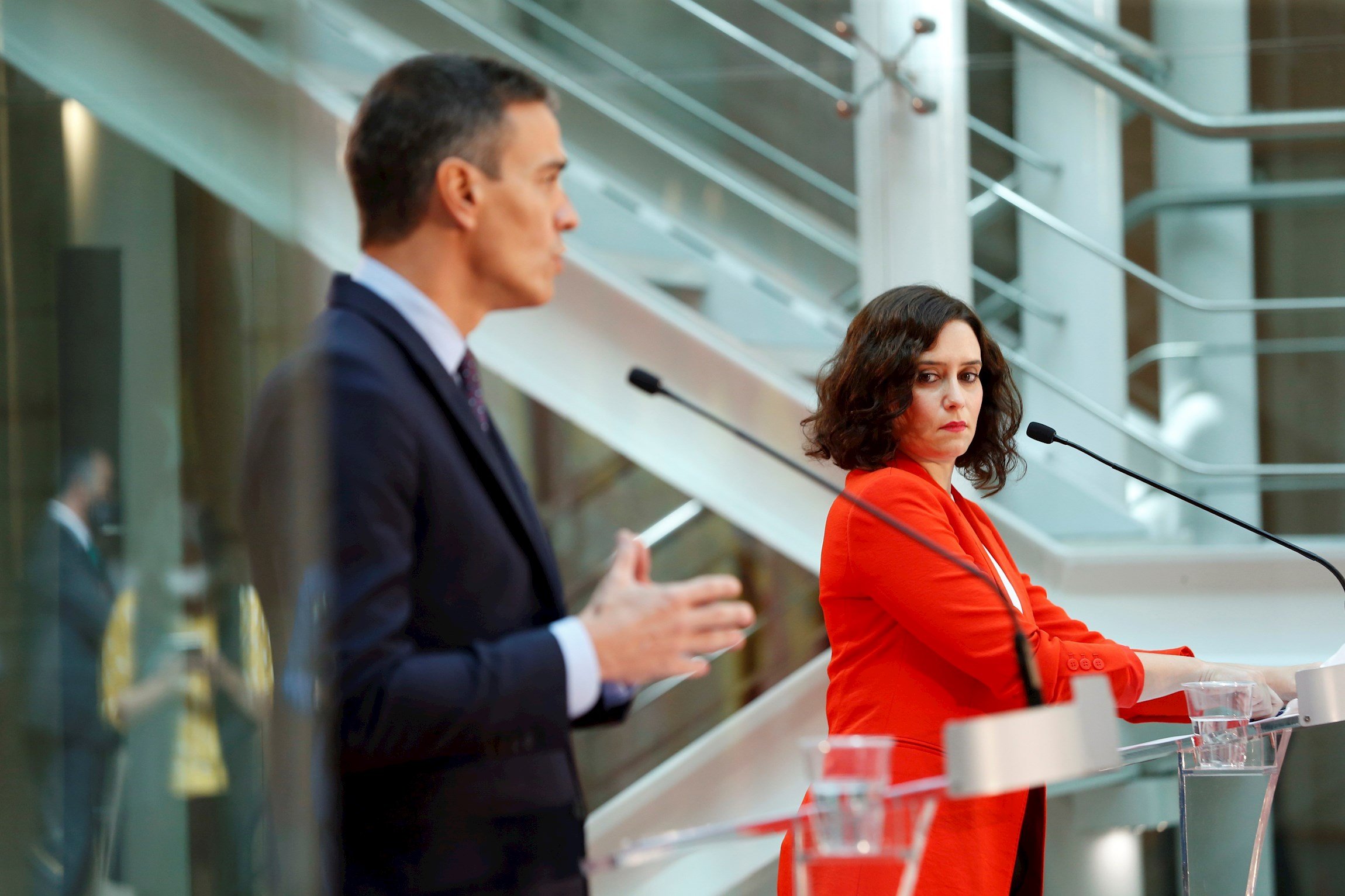The new criteria for coronavirus measures of Spanish health minister Illa have become "mandatory" for all autonomous communities, even if they voted against the measures. So what will the Community of Madrid do? Today, president Isabel Díaz Ayuso finally clarified her position during question time in the Madrid Assembly. "This community is not in rebellion, this government is not in rebellion," the PP leader clarified, to dispel speculation. "We will obey all orders because we are not like [the Socialist government's] pro-independence partners," she added. However, she said that "we will go to court again", as they did in May when they were denied an easing of lockdown restrictions during the first phase of the pandemic. They will do it "in defence of the legitimate interests of the people of Madrid."
Ayuso in the Madrid Assembly: "Of course, I'm going to obey the norms and comply with the law. Who do you think this government is? Like your pro-independence partners? No!"
The official state gazette this morning published the accord reached by Spain's interterritorial health council, passed yesterday with five communities voting against, including the Community of Madrid and Catalonia. The order, however, was notified last night to all autonomous communities. The only one currently affected, Madrid, now has 48 hours to implement the measures. There are ten municipalities affected today, all in the Community of Madrid. They are the city of Madrid itself, Getafe, Fuenlabrada, Alcorcón, Parla, Alcobendas, Alcalá de Henares, Leganés, Móstoles and Torrejón de Ardoz.
According to the document, the Madrid regional powers will have to apply "minimum" measures. These include the perimeter closure of each municipality, except for permitted activities such as work and school, the reduction of gathering sizes to a maximum of six people and the closure of all commercial premises - including bars - at 10pm, with a only 50% of usual capacity of spaces being allowed inside, and 60% on terraces.
After the health meeting yesterday, the Madrid health chief, Enrique Ruiz Escudero, complained that the document passed did not have "legal validity" under the interterritorial committee's own regulations. "This measure that, according to what has been announced, is to be published in the gazette, has not been passed by consensus. It requires a consensus which does not exist, "he said. He did not clarify whether Madrid would abide by the measure or not.
Almeida: "Unilateral intervention"
For his part, Madrid's conservative mayor José Luis Martínez-Almeida accused the Spanish government of having "unilaterally intervened" in the Community of Madrid through its official gazette. The mayor lamented that the health ministry order "destroys the possibility of agreement" which the regional authorities sought. Martínez-Almeida asserted that Pedro Sánchez and Salvador Illa are the ones who have to explain what has happened because they are the ones who have changed criteria.

